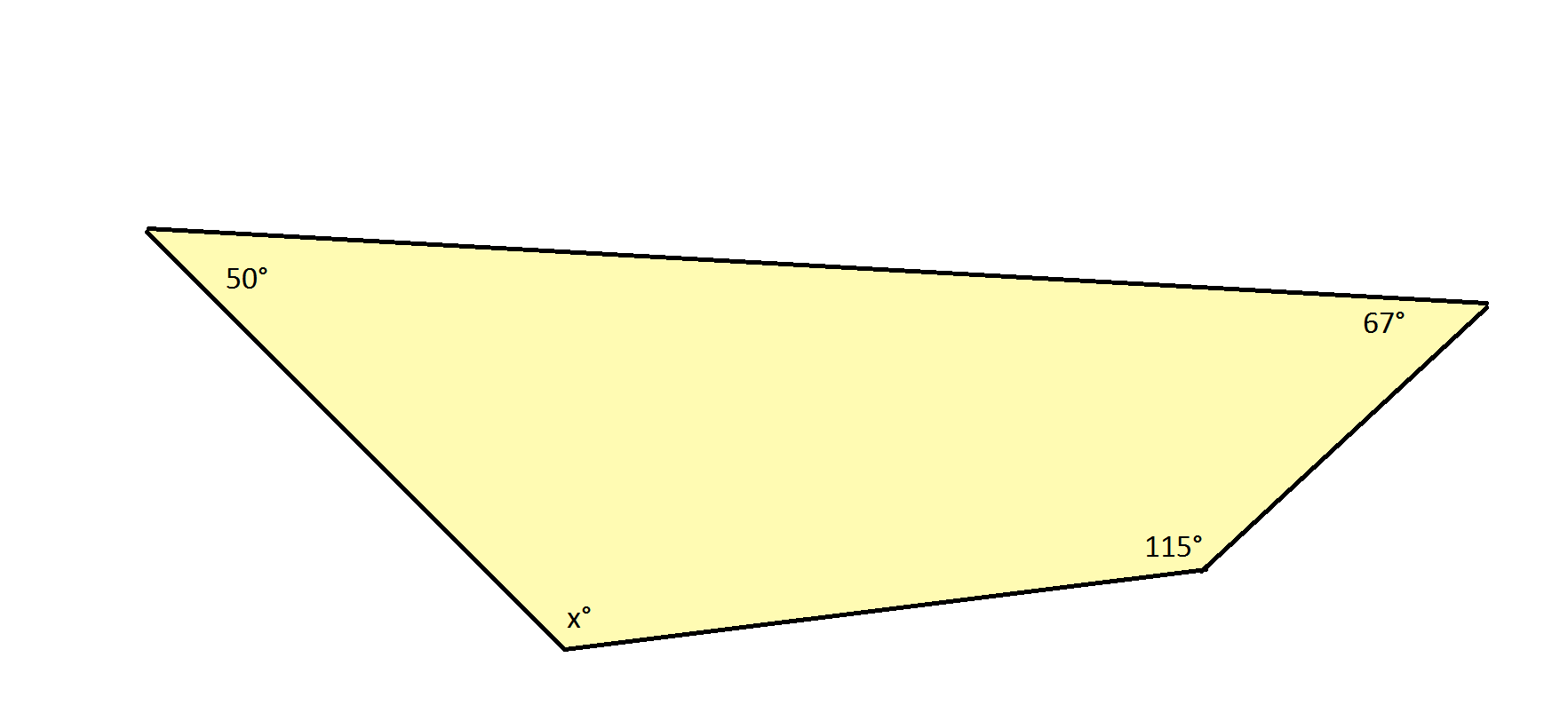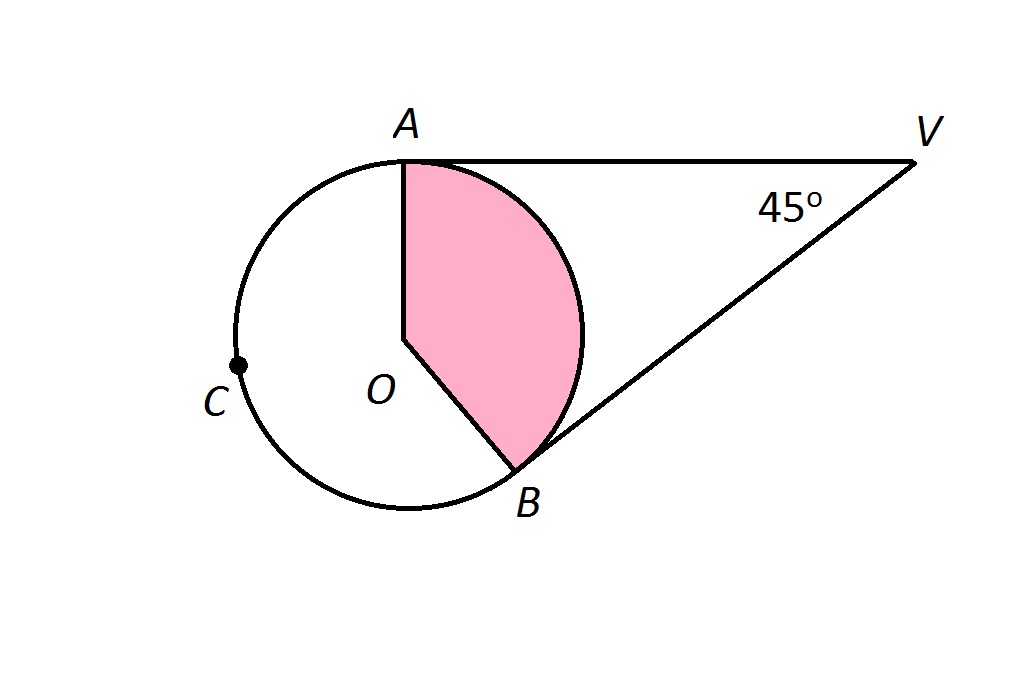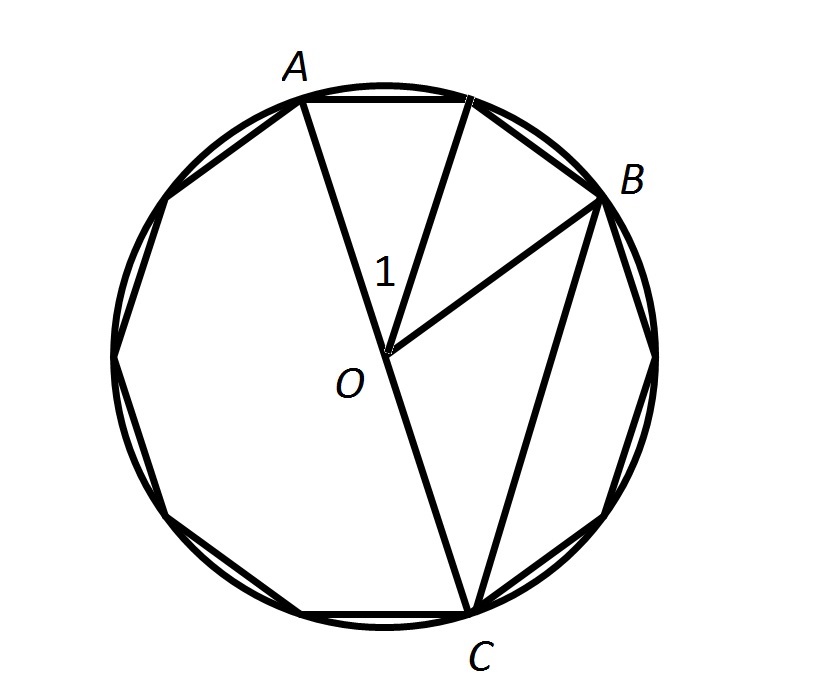All HiSET: Math Resources
Example Questions
Example Question #1 : Properties Of Polygons And Circles

A quadrilateral is shown, and the angle measures of 3 interior angles are given. Find x, the missing angle measure.
The sum of the measures of the interior angles of a quadrilateral is 360 degrees. The sum of the measures of the interior angles of any polygon can be determined using the following formula:


For example, with a quadrilateral, which has 4 sides, you obtain the following calculation:
Solving for 
Solving for 
Example Question #11 : Measurement And Geometry






Therefore, we need to find 
If the sides of an angle with vertex outside the circle are both tangent to the circle, the angle formed is half the difference of the measures of the arcs. Therefore,
Letting 
We are also given that
Making substitutions, and solving for 
Multiply both sides by 2:
Subtract 360 from both sides:
Divide both sides by 

the measure of 

Example Question #13 : Measurement And Geometry

The above figure shows a regular seven-sided polygon, or heptagon, inscribed inside a circle. 
Give the measure of 
Consider the figure below, which adds some radii of the heptagon (and circle):




where 
Consequently,

the correct response.
Example Question #14 : Measurement And Geometry

The above figure shows a regular seven-sided polygon, or heptagon, inscribed inside a circle. 
Give the measure of 
Examine the diagram below, which divides 


The measure of a central angle of a regular 





Example Question #15 : Measurement And Geometry

The above figure shows a regular seven-sided polygon, or heptagon, inscribed inside a circle. 
Give the measure of 
Examine the diagram below, which divides 


The measure of a central angle of a regular 





Example Question #16 : Measurement And Geometry

The above figure shows a regular ten-sided polygon, or decagon, inscribed inside a circle. 
Give the measure of 
Examine the diagram below, which divides 


The measure of a central angle of a regular 






Example Question #17 : Measurement And Geometry

The above figure shows a regular ten-sided polygon, or decagon, inscribed inside a circle. 
Give the measure of 
Consider the triangle 



Now, examine the figure below, which divides 


The measure of a central angle of a regular 






The measures of the interior angles of a triangle total 
Substituting 108 for 


Example Question #18 : Measurement And Geometry

The above figure shows a regular ten-sided polygon, or decagon, inscribed inside a circle. 
Give the measure of 
Through symmetry, it can be seen that Quadrilateral 




The measure of 

where 
Substituting:
Example Question #71 : Hi Set: High School Equivalency Test: Math
If two angles are supplementary and one angle measures 
Step 1: Define supplementary angles. Supplementary angles are two angles whose sum is 
Step 2: Find the other angle by subtracting the given angle from the maximum sum of the two angles.
So,
The missing angle (or second angle) is
Example Question #20 : Measurement And Geometry




Evaluate 






Substitute and solve for 


All HiSET: Math Resources





























































































